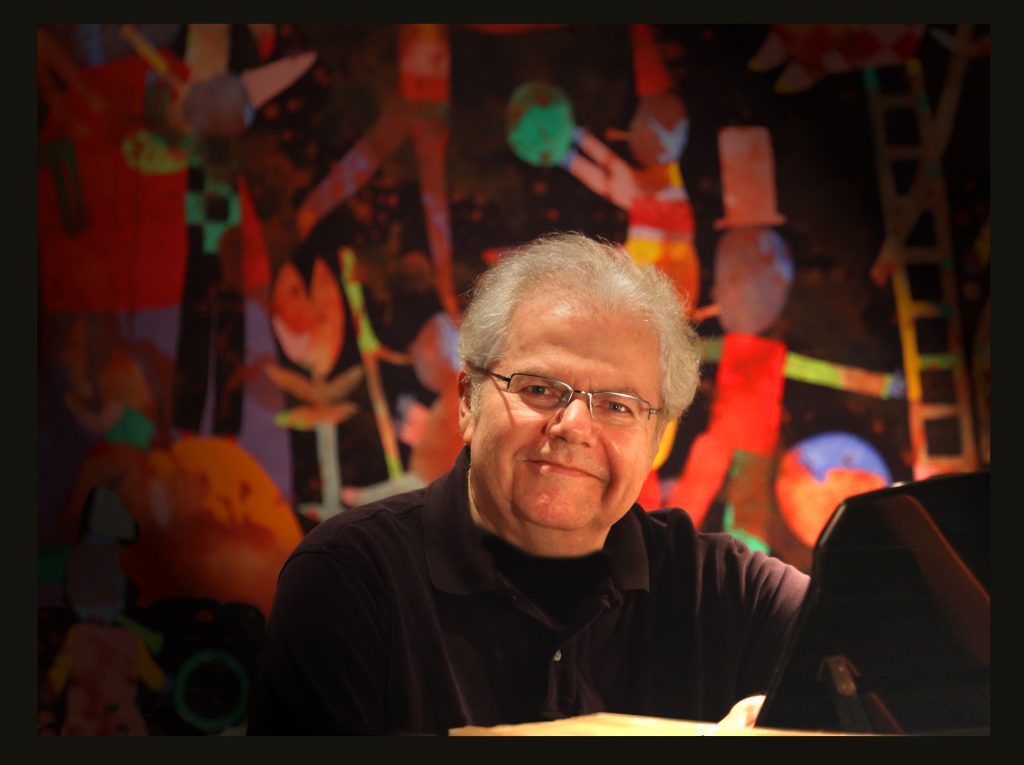Emanuel Ax Brings Both Authority and Brilliance to His All-Chopin Recital in La Jolla
As Emanuel Ax launched into his vigorous account of Frédêric Chopin’s Third Piano Sonata in B Minor, Op. 58, the apex of his all-Chopin recital Friday at The Conrad, my favorite Mae West quotation came to mind.
“Too much of a good thing . . . can be wonderful.”
With his meticulously ordered survey of Chopin’s late works, Ax gave us his elegant but probing consideration of this repertory—dance movements, nocturnes, and the valedictory sonata—clad in his impeccable technique and unfailing stylistic empathy. Ax was born in Poland, like Chopin, and, like him, Ax spent his career entirely apart from his native soil. But it would be difficult to deny the virtuoso’s birthright identity with the beloved 19th-century composer.Ax’s recital unfolded sleekly without intermission: once he came on stage, he remained at the piano for an hour and a half, standing only for short, almost apologetic bows after a few sections, each subtly delineated on the printed program. This approach provided an unmatched level of concentration on the music for both the performer and the audience, although I cannot say I am eager for this practice to become universal.
Ax opened with understatement, Two Nocturnes, Op. 55. The graceful F Minor Nocturne displayed Ax’s incomparable rich, pliant cantabile solo line, and the E-flat Major Nocturne featured a kind of bright contrapuntal engagement of right hand and left hand that is unusual for Chopin, as Eric Bromberger pointed out in his always insightful program notes. The Polonaise-Fantasie in A-flat Major, Op. 61, is one of those virtuoso showpieces that thrills Chopin lovers and tries the patience of those listeners who require more structural coherence and logic. Ax treated the Polonaise-Fantasie as the inspired improvisation it no doubt was at its conception, bridging its disparate sections with a confident emotional continuity and, of course, his admirable technical finesse.
Of the Three Mazurkas, Op. 56, I found the C Minor Mazurka, the final of the three, the most winning, with its darker harmonic palette suggesting a mysterious program that an engaged listener might eagerly conjure. The mesmerizing pulse and characteristic figuration of a barcarole can leave little impression other than a wan smile on the face of a listener, but Ax’s account of Chopin’s Barcarolle in F-sharp Major, Op. 60, with his elegant touch and masterful treatment of tumultuous conclusion, gave the piece the shape and feel of a grand orchestral tone poem.
Perhaps it is too glib to say that the first hour of Ax’s Chopin recital was spent preparing his audience for the Sonata No. 3 in B Minor, but I have no doubt they were more receptive to experiencing the Sonata than if they had just returned from 20 minutes of avid socializing at intermission.
Like the first portion of his program, Ax’s Sonata performance benefited from his unrelenting, adroitly concentrated sense of purpose and direction throughout the span of the work. The B Minor Sonata may not fit a Music Theory instructor’s precise definition of sonata form, but Ax’s persuasive authority made every new theme and section seem integral and requisite.
His majestic sweep of the opening Allegro and his seamless grace of the animated Scherzo gave way to a more emotionally probing account of the solemn Largo that at times evoked a pensive nocturne. Ax transcended challenges of the flashy Finale with a confident exuberance and virtuosic splendor that will be hard to equal.
This marked the third time in less than a year that we have experienced Chopin’s B Minor Sonata: Yefim Bronfman played it at The Conrad last May, and Gustavo Romero played it at the Athenaeum in October. I think I am at last beginning appreciate this Sonata!
This recital by Emanuel Ax was presented on Friday, January 7, 2022, by the La Jolla Music Society at the Conrad Prebys Performing Arts Center in downtown La Jolla.

Ken Herman, a classically trained pianist and organist, has covered music for the San Diego Union, the Los Angeles Times’ San Diego Edition, and for sandiego.com. He has won numerous awards, including first place for Live Performance and Opera Reviews in the 2017, the 2018, and the 2019 Excellence in Journalism Awards competition held by the San Diego Press Club. A Chicago native, he came to San Diego to pursue a graduate degree and stayed.Read more…

